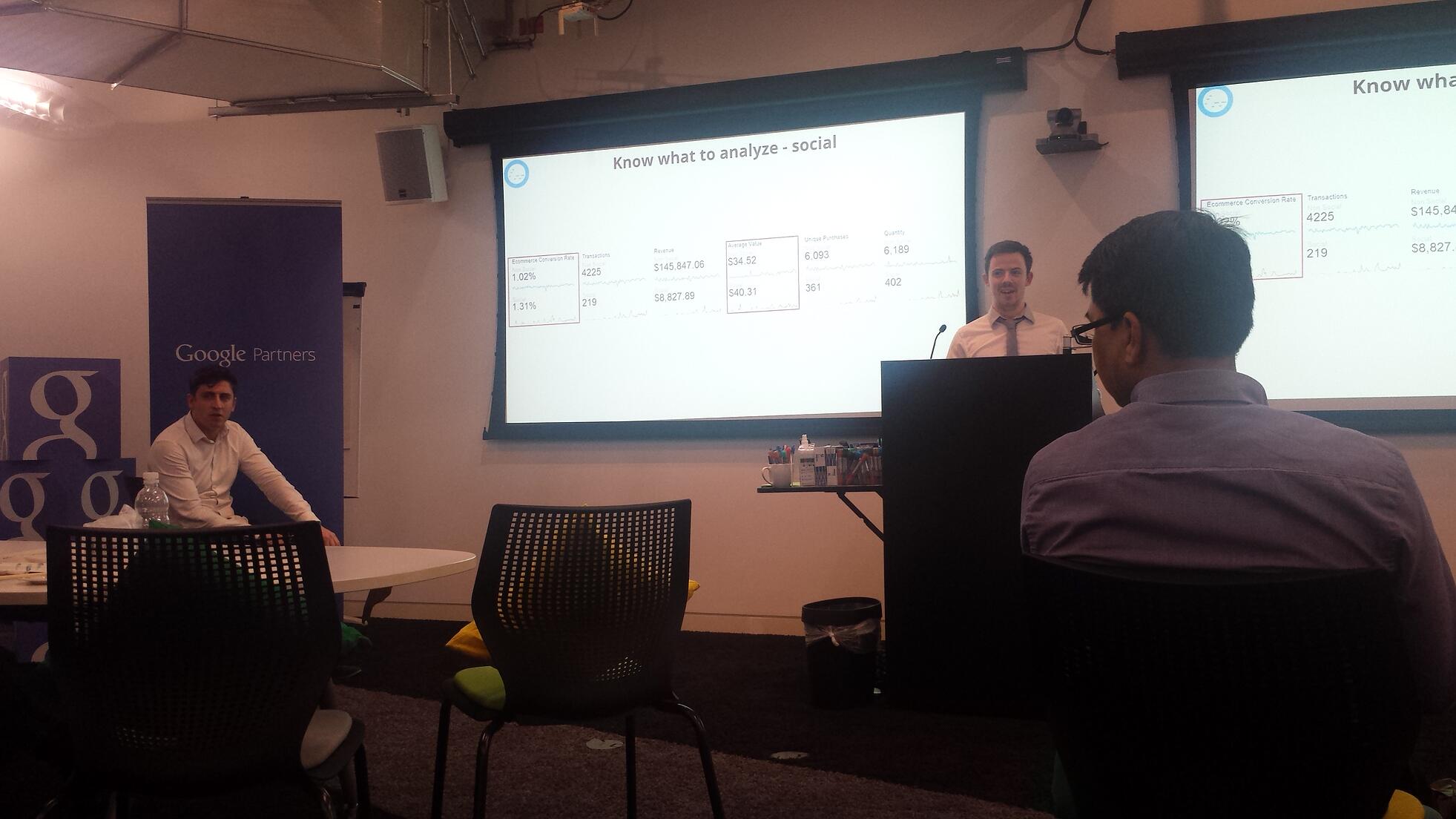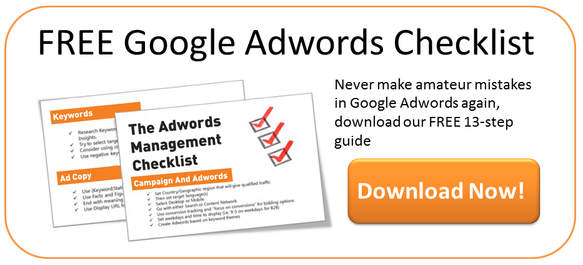Insights From Google Partners ‘Attribution & Bidding Strategies’ Workshop

I am writing this on a crowded train back to Derby from London, having spent the day at Google’s HQ in the West End of London.
As part of our relationship as Google Partners, we get the chance to work closely with Google on our ad campaigns, and get access to a number of resources. Today was one of those resources, a workshop centered around two key topics: Attribution, and Bidding Strategies
It was great to listen to speakers from Google themselves on these subjects – but before I get into the learning, a few observations from the day.
Firstly Google sees a big future in three things; Mobile Advertising, Video Advertising, and Remarketing (and they are absolutely right, by the way – all three of these are being underused by companies and brands right now).
Secondly, the work environment was remarkable – I only saw parts of the building but there were interesting displays and unusual décor everywhere, from the submarine style doors to the train-compartment style booths in the common areas.
And the brand is everywhere in the building – there was a ‘YouTube’ popcorn machine in the canteen, a giant model Android, as well as red, yellow, green and blue pillows in a rest area. And of course, everyone is working from Chromebooks!
They are also interested in looking after their staff – the canteen was full of healthy eating posters and a big juicer with lots of fresh fruit and vegetables, there is also a library and a gym in the building.
While these are not expenses/investments most businesses can make, there is certainly something to learn from the way they foster a culture and promote their brand values internally as well as externally.
Anyway, on to the content – here’s a short summary of the two topics:
1) Attribution
Conversion tracking in AdWords tends to focus on the last click, however Google Analytics have developed tools that allow other custom attribution models (these are especially relevant when evaluating the impact of influencing factors like display advertising, social media and email). Using these tools you can see that a conversion from organic search or a direct visit may have actually originated from a social media link or a click from an ad – the may have discovered your site that way, and bookmarked the URL only to come back later to complete the purchase.
It’s worth noting at this point that this is all to be taken with a pinch of salt, of course Google want you to attribute as much value as you can to the ads you run with them. But then this is as relevant to social media marketing, SEO or any other form of marketing you are doing as well as paid advertising – the better you can understand the data your analytics give you the better decisions you can make going forward.
There are four steps:
- Tracking – don’t just have one goal conversion – measure the ‘micro’ conversions as well as the ‘macro.’ So track video plays, site searches, newsletter signups, new account creation, social media interactions, and anything else to get a full picture of how your site is performing.
- Segmentation – segmenting things like mobile traffic vs. desktop traffic, repeat customers vs. first time visits or social visits vs. non-social visits, is a great way of making sense of large swathes of analytics data.
- Review conversions with different tools in the multi channel feature in Google Analytics – look at time lags to sale, in-page analytics, top conversion paths and more.
- Take action – make specific decisions based on this data to improve your results.
This process can (and should) be repeated regularly to iteratively improve conversions in any campaign you are running.
2) Bidding Strategies
There are five bidding strategies to choose from:
- Target CPA – Where Google uses your data to automatically optimise your bids for each keyword to achieve a target cost per acquisition (CPA)
- Enhanced CPC – This is somewhere in between Target CPA and Manual bidding, where you are still able to run bid adjustments based on device, location and time of day and you still have some control over specific keyword bids
- Target ROAS (return on ad spend) – For E-commerce businesses, this is where you can sync your Analytics E-commerce data with your AdWords account to calculate a cost of conversion per ad spend. You can then set a target, e.g. 1000% return, and Google will automatically optimize your bids to work towards this target.
- Maximum Clicks – Google will optimise your bids to give you the most traffic for your daily budget, regardless of conversions
- Target Search Page Location – if your goal is to have the number one ad for your keywords, this bidding strategy will automatically increase your bids to the level needed to achieve this and outbid your competitors.
Of these, not all are available for every campaign ad are certainly not recommended for every campaign – but they can help save time and improve results.
So that’s a quick overview, the benefit of having a Google Partner work with you is that we spend the time on this so you are able to free yourself up for other roles on your business!
Article by Will Williamson


